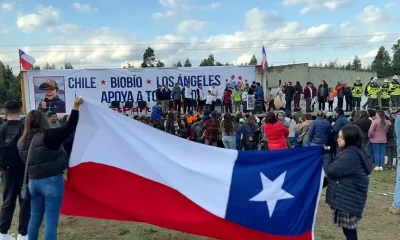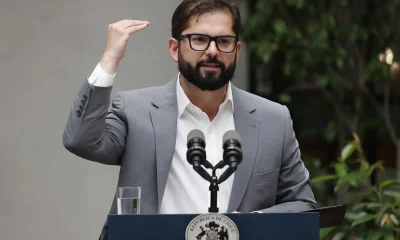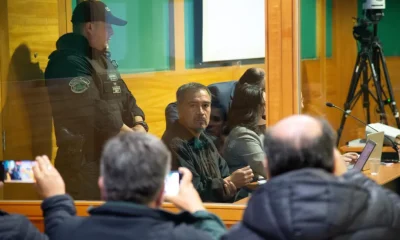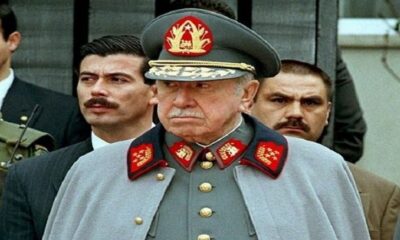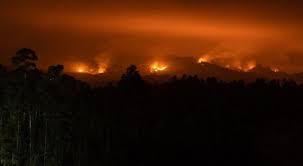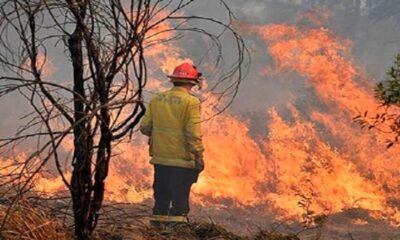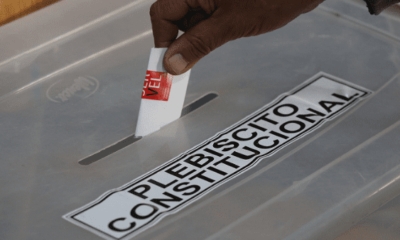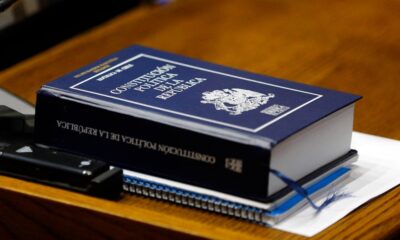International
The mother who decided to walk 1,300 kilometers in Chile to get an expensive medicine and save her son from a serious illness
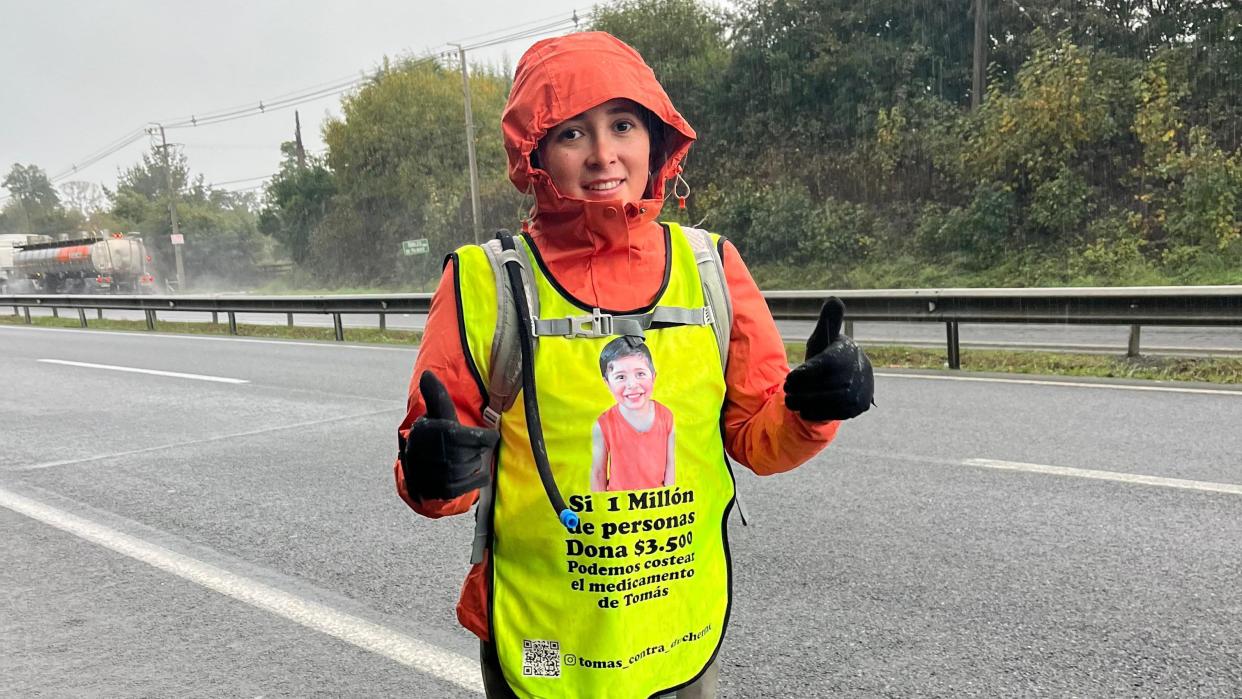
Walking the more than 1,300 kilometers that separate the commune of Ancud in Chiloé from the Palacio de la Moneda in Santiago in Chile may seem like a chimera to many.
Not so for the Chilean Camila Gómez, a mother who completes this challenge with the goal of raising 3.5 billion pesos (US$3.7 million) to buy a vital medicine for her five-year-old son and make visible the cause of patients with rare diseases in Chile.
Time is pressing. His son, Tomás Ross, suffers from Duchenne muscular dystrophy, a severe ailment that worsens quickly. If you do not receive the drug as soon as possible, it will be difficult to stop the disease.
“It is a very expensive medicine and a disease that in Chile has no opportunities, but there are opportunities abroad,” Gómez tells BBC Mundo.
Thousands of Chileans turned to Gómez’s case, whose determination went viral in the country.
The mother left Ancud on April 28 with Marcos Reyes, president of the Duchenne Families corporation in Chile, who also has two teenage children with the disease.
It was precisely Reyes who suggested the idea of the walk to Gómez.
“We walk for all the children and families who suffer from the disease. Time is running out,” Gómez said in an interview with the 24-hour national news.
The goal, in addition to raising funds and making their causes visible, is to get Chilean President Gabriel Boric to “bring a bill to Congress” that allows to improve the coverage of rare diseases in the country, as Reyes explains to BBC Mundo.
“He was born healthy, without any problem or complication, until at the age of four we realized that he had difficulty climbing stairs and performing some types of physical activity,” Gómez said on social networks.
“Until that moment there was no cure, but for a few months we have had a hope; in the United States the first drug was approved whose objective is to stop the progression of the disease,” Gómez continued.
This drug is marketed as elevidys and is administered intravenously in patients who, like Ross, are between four and five years old.
There are several types of muscular dystrophy, although Duchenne is the most common form and also one of the most severe.
The disease is unleashed due to a defective gene that results in the absence of dystrophin, a protein that helps keep the body’s cells intact.
Patients can develop problems when walking and running, fatigue, learning difficulties and cardiac and respiratory deficiencies due to the weakening of vital muscles in these functions.
The British national health services indicate that it normally affects young children and that people with this ailment usually live until they are 20 or 30 years old.
Gómez talks to BBC Mundo this Sunday, May 12, in “a little pause, while eating a little.”
It has already been more than two weeks of a journey that has about half left.
At the time of speaking, he is at the Púa toll booth, in the Araucanía Region, still more than 600 kilometers from the capital.
“This journey is crazy, but we think it’s turning out more than imagined,” says Gómez.
The first week was hard, but the mother says that with the passing of the days everything is getting easier.
“It’s impressive how the body adapts to the rhythm and it’s not so terrible anymore,” he says.
He is also helped by the emotional impulse he received by surprise last Friday, May 10 on the occasion of Mother’s Day.
Her son Tomás found her in the city of Temuco, accompanied by her father Alex Ross, to give her a hug, a bouquet of flowers and a recharge of encouragement.
“The boy knows that his mother gathers talks to find him a remedy, but he was only there for a while and turned to Chiloé. Because of the disease he has, he shouldn’t be cold,” Alex Ross tells BBC Mundo.
By May 10, the family had managed to raise more than half of the funds.
Gómez documents his tour on his social media accounts, where he receives thousands of messages of support, hundreds of thousands of views in his videos, the attention of the press and the company of other walkers who join in some sections of his tour.
“This has grown so much that I must help with the whole logistical issue: I look for accommodation, food, I assist them on the route with dry clothes, I look for podiatrists, kinesiologists and medicines,” says Alex Ross.
Camila Gómez and Marcos Reyes expect to arrive in La Moneda at the end of May, depending on the weather conditions.
A long way to make its causes visible that goes beyond the more than 1,300 kilometers that they will have traveled at the end of their journey.
Central America
Senator Van Hollen Meets with Deported MS-13 Member in El Salvador; Trump and Bukele React

U.S. Democratic Senator Chris Van Hollen, representing the state of Maryland, held a meeting in El Salvador with deported MS-13 gang member Kilmar Ábrego García, a member of the criminal group classified by the U.S. government as a terrorist organization.
“Kilmar Ábrego García, miraculously resurrected from the ‘extermination camps’ and ‘torture chambers,’ now sipping margaritas with Senator Van Hollen in the tropical paradise of El Salvador!” wrote President Nayib Bukeleon X (formerly Twitter), sharing photos of Van Hollen, Ábrego García, and a lawyer sitting together at a Salvadoran hotel.
The deported gang member is seen wearing a plaid shirt and a flat-brimmed cap, seated at a table with glasses and coffee cups. The senator also shared images of the meeting on his own social media accounts.
Bukele reaffirmed that Ábrego will remain in El Salvador and will not be returned to the United States.
“Now that his health has been confirmed, he has earned the honor of remaining under the custody of El Salvador,” Bukele added.
Former U.S. President Donald Trump criticized the senator’s meeting with Ábrego on Truth Social, calling Van Hollen “a fool” for advocating for Ábrego’s return to the U.S.
International
Pope Francis Appears for Easter Blessing, Calls for Peace and Religious Freedom

Pope Francis, still recovering from pneumonia, appeared on the balcony of St. Peter’s Basilica in the Vatican on Easter Sunday and, with a faint voice, wished a “Happy Easter” to the thousands of faithful gathered to celebrate the Resurrection of Christ.
A month after being discharged from a lengthy hospital stay, the presence of the 88-year-old pontiff had remained uncertain, with the Vatican not confirming his attendance ahead of time.
Eventually, the pope made a brief appearance in a wheelchair shortly after 12:00 p.m. (10:00 GMT) to deliver his traditional “Urbi et Orbi” blessing (“to the city and to the world”).
Although no longer wearing an oxygen cannula, the Argentine Jesuit relied on a close aide to read his Easter message, which touched on major global conflicts.
Francis condemned the “dramatic and unworthy humanitarian crisis” in Gaza and called for a ceasefire, while also expressing concern over the “growing climate of antisemitism spreading across the globe.”
He further emphasized the importance of religious freedom and freedom of thought, stating that without mutual respect, “peace is not possible.”
International
Thousands rally nationwide against Trump’s threat to U.S. democracy

Thousands of protesters gathered on Saturday (April 19, 2025) in major cities like New York and Washington, as well as in small communities across the United States, in a second wave of demonstrations against President Donald Trump. The crowds denounced what they view as growing threats to the country’s democratic ideals.
In New York City, demonstrators of all ages rallied in front of the Public Library near Trump Tower, holding signs accusing the president of undermining democratic institutions and judicial independence.
Many protesters also criticized Trump’s hardline immigration policies, including mass deportations and raids targeting undocumented migrants.
“Democracy is in grave danger,” said Kathy Valyi, 73, the daughter of Holocaust survivors. She told AFP that the stories her parents shared about Adolf Hitler’s rise to power in 1930s Germany “are happening here now.”
In Washington, demonstrators voiced concern over what they see as Trump’s disregard for long-standing constitutional norms, such as the right to due process.
-

 International4 days ago
International4 days agoArsenal stun Real Madrid at the Bernabéu to reach Champions League semifinals
-

 Central America3 days ago
Central America3 days agoNicaraguan Exiles to Mark 7th Anniversary of 2018 Protests with Global Commemorations
-

 International3 days ago
International3 days agoDominican ‘False Hero’ Arrested for Faking Role in Nightclub Collapse That Killed 231
-

 International4 days ago
International4 days agoBogotá residents line up for yellow fever vaccine amid national alert
-

 International2 days ago
International2 days agoACLU seeks emergency court order to stop venezuelan deportations under Wartime Law
-

 International4 days ago
International4 days agoDeSantis’ immigration crackdown sparks alarm in Venezuelan Communities in Doral
-

 Central America2 days ago
Central America2 days agoUN complaint filed against Costa Rica over detention of migrant children
-

 International4 days ago
International4 days agoMexico refuses to restore ties with Ecuador while Noboa remains in office
-

 International18 hours ago
International18 hours agoThousands rally nationwide against Trump’s threat to U.S. democracy
-

 International46 mins ago
International46 mins agoPope Francis Appears for Easter Blessing, Calls for Peace and Religious Freedom
-

 Central America45 mins ago
Central America45 mins agoSenator Van Hollen Meets with Deported MS-13 Member in El Salvador; Trump and Bukele React
















